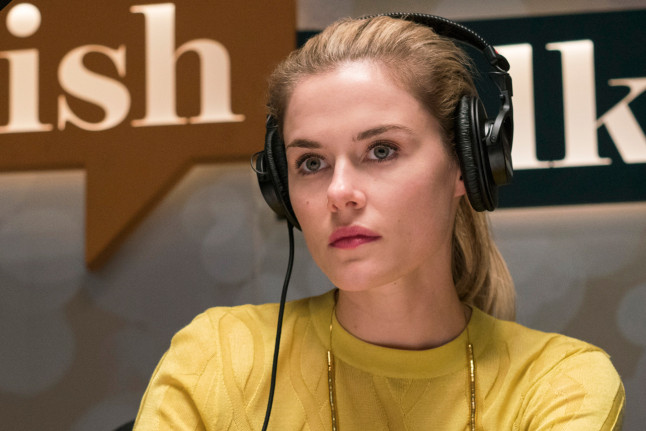*spoilers below*

I’ll admit, I was never a huge Jessica Jones fan through the years.
I’ve seen every season and been super engaged when watching, and also watched Defenders, but just seem to forget about it during the gaps. I don’t even remember much of what happened in Season 2.
But this latest season…I want to just take a moment to appreciate how beautiful it was. From the women-filled cast and crew, to the inclusion of a trans character whose focus isn’t that she’s trans, the show is a step towards a more diverse and accepting future. But even just looking at the plot, there are so many things I appreciated about the narrative and moral food-for-thought they decided to explore.
They say that the best horror media taps into what the current population is scared of, captured in a slice of time from their present day. True to this, the season opens by focusing on a straight, white man who is secretly a serial killer. He is the kind of loner who is an intellectual, a pseudo-philosopher who has decided that he is an infallible arbitrator of who is ‘good’ and ‘bad’. To women today, it’s a little too reminiscent of the ‘Reddit dude-bro’ type who wants to play devil’s advocate on every issue and argue that logic trumps everything else. In the current day and age of neo-Nazi’s and school shooters, this is the mentality that is at the focus of many peoples’ fears.
However, my favorite twist was what was growing in the shadows slowly, not only in this season, but perhaps through the entire series. Trish Walker – the woman who could never escape the name Patsy, not even from her own mother’s mouth. The woman who constantly focused on what was morally right and wrong, until slowly the manic look in her eyes overtook her.
Trish being the final villain of the series was heartbreaking, fascinating, and completely brilliant. It provided such important commentary on how even people who are the fiercest defenders of good can lose themselves along the way. Trish served as a reflection of the serial killer, Gregory Sallinger, from the opposite side of morality. If Gregory serves as the penultimate representation of evil, Trish is his foil from the side of purity. Both lose themselves in a madness of trying to judge others on their own morality and become punishers of those they deem wrong or unworthy. Trish ends up becoming exactly what she hates, without realizing just how similar her motives are to Sallinger’s. In one of the final scenes, she is read a list of her crimes with the context of her victims stripped away and it finally dawns on her the horror of her crimes. It was incredibly powerful.
Recently, the online climate has become relentless towards wrong-doers in our society, especially those who hurt woman or children. I remember seeing a Tumblr thread online a few years ago describing how a mother tracked down and burned her daughter’s rapist alive. All the comments were cheering her on and saying that if they were in a similar situation, they would do the same. It’s hard to not take the side of the underdog, those who have been societally kicked down for generations, for finally taking matters into their own hands. But at the same time, there’s a very harmful insinuation that we can do whatever we want to people provided they did something worse to us first.
That idea has bugged me since then and I’ve never been able to quite articulate it. But seeing the downfall of Trish Walker on screen and how she attempted to do the right thing in all the wrong ways was the perfect explanation on why violence is never the answer, even if it seems justified. Jessica’s decision to turn her own sister in was the acceptance of that messy, tumultuous concept. The season, and series, may have ended in a way that felt unsatisfying and rushed, but it still touched on ethical concepts that I haven’t seen other shows pull off as successfully. For that, I have to commend them.
To those who have watched the season – what were your thoughts? I’d love to hear other takes and if there were other nuances throughout that you noticed!